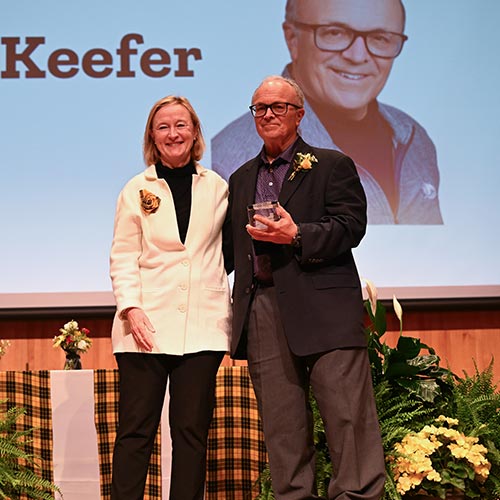
Economics alumnus develops photography to fund medical research
While Jeff Keefer ’74 studied economics at The College of Wooster and went on to work at the biotechnological and chemical manufacturing company DuPont […]
Economics majors from the College of Wooster pursue many career paths. They apply skills learned in the classroom before they graduate through experiential learning. Our curriculum builds analytical and critical thinking skills, as well as writing and communication that are prized by employers. For this reason, graduates have a variety of paths open to them. Wooster’s Economics majors have found fulfilling careers in the public and private sectors, in entrepreneurship, research, and in organizations of every size and industry. These include the United States Federal Reserve, U.S. Department of State, Kenyan Ministry of Foreign Affairs, OECD, International Monetary Fund, The World Bank, Morgan Stanley, Ernst & Young, Citigroup, Grameen Bank, CVS, Johnson & Johnson, The Gap, Boston Consulting Group, Mathematica, Bain & Company, and Dahlberg as well as research organizations like Poverty Action Lab, and International Food Policy Research Institute. Some students have also opted for highly selective service opportunities after they graduate such as Peace Corps or Teach for America. A large percentage of our graduates go on to graduate programs or have pursued professional degrees in law, business, and accounting. Wooster ranks No. 3 in the nation on the list of graduates who go on to earn Ph.Ds.
The Economics major helps students understand how humans organize to sustain life and enhance its quality, specifically how social and economic institutions are used to provision and allocate resources. Our program provides an analytically rigorous and critical understanding of markets, market failures, and non-market institutions that affect the everyday lives of individuals, families, firms, and societies. A Wooster Economics major is comfortable studying a wide variety of questions from different perspectives. Questions include: How do we individually and collectively ensure our material well-being now and into the future? How do individuals, families, communities, and institutions make behavioral and policy choices? Why is it that we have poverty, inequality, recessions, debt, unemployment, inflation? What are the roles of for-and-non-profit firms, financial institutions, governments, and central banks in an economy? The program develops an understanding of markets and its failures, behavioral choices and agency in diverse settings, alternative systems of provisioning and allocation, and the effects of institutions and policy on individuals, firms, and societies.
The core curriculum consists of five-and-one-half required courses, a scaffolded three semester mentored thesis experience, and five electives. Together these expose students to the systematic study of economic phenomena and problems using mathematical, statistical, and economic modeling tools. They include instruction and application of statistics, econometrics, optimization theory, cost/benefit analysis, price theory, and economic modeling. The electives deepen critical thinking, expose students to pluralist ideas, diverse forms of economic analysis, the philosophical origins of the discipline, and extends the quantitative and econometric training further to include novel empirical practices.
Wooster’s unique approach to mentorship is woven through economics courses. Our faculty facilitate and lead unique experiential learning opportunities for our students. For example:
With our experiential learning programs, teams of students supported by faculty advisors work with business, industry, or agency clients, or do academic research using the tools they learned in our courses.
The department’s ethos uses individual advising to create a supportive environment for our students’ intellectual interests and career goals. This ethos has supported the creation of Wooster Women and Gender Minorities in Economics (WWGME), a student run club. The department supports WWGME’s mission to elevate female, non-binary, and other gender-minority students as leaders in the field of economics.
Learn more about Economics at WoosterApplied Methods and Research Experience (AMRE)
The Applied Methods and Research Experience (AMRE) gives College of Wooster students the opportunity to apply classroom learning in the role of business and organizational consultants. For eight weeks of the summer, student teams and faculty advisors are paired with a (usually local) business, industry, or agency (client). Student participants are exposed to practical applications of their liberal arts education in a “real world” setting. This experience aids students in determining professional interests and developing professional skills. The faculty advisors have the opportunity to be involved with a very select group of students in a summer activity, while potentially contributing to research in applied fields. Clients have the opportunity to tangibly support education and, at a low cost, obtain solutions to problems that would most likely not be addressed internally.
Learn More View Independent Study Projects
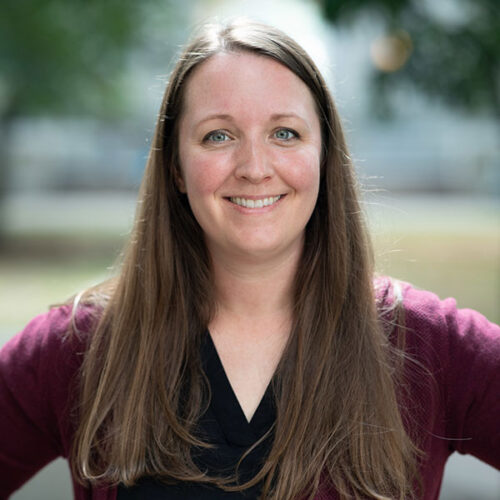
Department Chair and Associate Professor of Economics & Business Economics; Pre-Business Advisor Fall 2025 (On Leave Spring 2026)
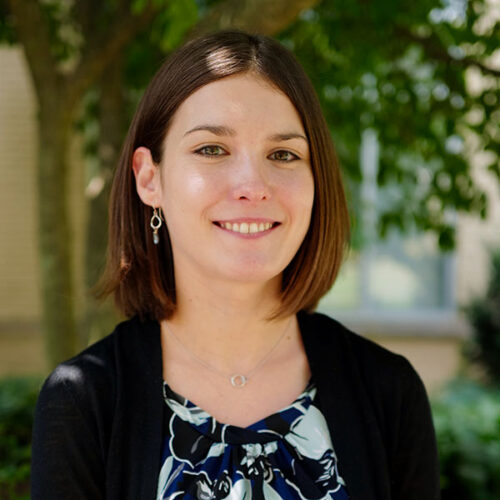
Associate Professor of Economics & Business Economics; Women's, Gender & Sexuality Studies
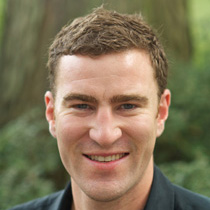
Associate Professor of Economics; Business Economics (On Leave 2025-26)
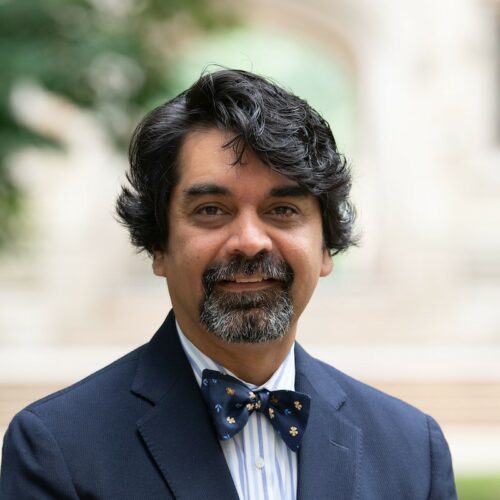
Professor of Economics & Business Economics and Department Chair of Global & International Studies; Co-Founder of Social Entrepreneurship Program; Pre-Business Advisor (Spring 2026)

Administrative Coordinator, Notary Public - Economics and Business Economics, Education, Psychology

While Jeff Keefer ’74 studied economics at The College of Wooster and went on to work at the biotechnological and chemical manufacturing company DuPont […]
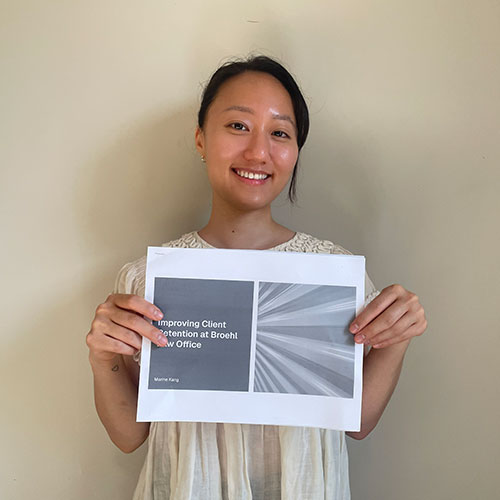
Through an APEX Micro Fellowship at The College of Wooster, Marine Kang ’26 completed an internship at the Broehl Law Office in Wooster, Ohio. Studying economics and English at the […]

Donald Dennis ’86 sees change as an opportunity for growth. In his almost 40 years as a leader in the financial services industry, Dennis […]
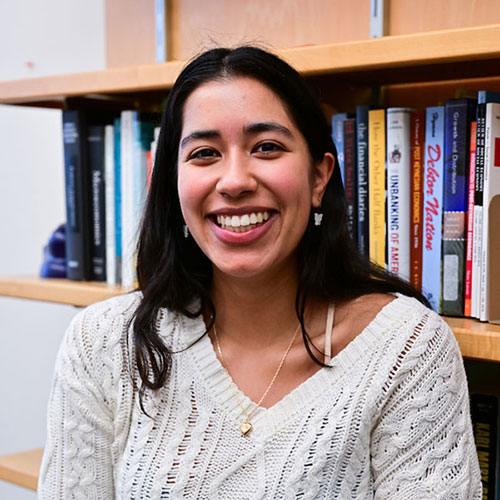
Growing up in Santiago, Chile, and seeing the country’s exponential growth that took millions of people out of poverty inspired Ignacia Méndez ’25 to […]
The economics major begins with a solid core of economic theory and quantitative methods. This preparation includes principles of economics, intermediate macroeconomic and microeconomic theory, quantitative methods and econometrics. Students then elect to take a series of topics courses such as health economics, the economics of gender, history and philosophy of economic thought, as well as environmental economics, labor economics, behavioral economics, public finance, law and economics, industrial organization, development economics, monetary economics and a yearlong series in international economics that includes trade and finance. Faculty also teach special topics inspired by their research on contemporary issues from time to time. Examples include the Global Health, Economics of Migration, Alternative Financial Institutions, Economic Topics in Environmental Justice, and Environmental Urban Economics. Visiting lectures are funded through the Wilson speaker series. Recent guests include Donald Kohn, former Vice Chair of the Federal Reserve, Peter Gruber, CEO of Mandalay Pictures, Katherine Reid, Director of the Cleveland Museum of Art, and Dr. Morton Kamien, Levy Professor of Entrepreneurship at Northwestern University.
Students who seek a STEM designation or have graduate school in mind are steered towards the department’s advanced electives in econometrics and courses in Mathematics. Students who seek to combine the career-ready quantitative training in Economics with an area of interest are encouraged to consider a program that our faculty actively contribute to. These include: Global and International Studies major with Economics as their home department, Environmental Studies, Urban Studies, Statistical & Data Sciences, as well as Women’s Gender & Sexuality Studies and Philosophy. Of course, students also have the flexibility to design their own major or double major.
View CoursesThe Economics minor trains students to analyze social and economic institutions used in the provisioning and allocation of resources. Our minor provides an analytically rigorous and critical understanding of markets, market failures, and non-market institutions that affect the everyday lives of individuals, families, firms. The minor consists of six courses and requires exposure to the core economic tools upto the intermediate level.
View CoursesAll students must successfully complete a year-long senior independent study thesis. Students work with individual professors, building a strong and cordial advising relationship that lasts a lifetime. Recent topics include a study on the efficiency of Islamic banks in Malaysia, the impact of the South Asian Preferential Trade Agreement on trade, the impact of micro-credit lending on consumption in Bangladesh, discriminatory lending policies in R907 banking, estimating the supply curve for human organs, informal labor market participation in Russia, and studying the efficient market hypothesis using neural networks.
| Student | Year | I.S. Title | Major 1 | Major 2 | Advisor |
|---|---|---|---|---|---|
| Please search to view results | |||||
Growing up in Santiago, Chile, and seeing the country’s exponential growth that took millions of people out of poverty inspired Ignacia Méndez ’25 to […]
Jonathan (Jonny) Swiatkowski ’25, a statistical & data sciences major and economics minor, went into his I.S. project at The College of Wooster knowing […]
An estimated 4.5% of U.S. households (approximately 5.9 million people) were “unbanked” in 2021 meaning they didn’t have a checking or savings account at […]
A 2023 TREK trip to Costa Rica with faculty and students from The College of Wooster inspired economics major Trinity Harmon ’24 to investigate […]
Wooster’s Economics majors have found fulfilling careers in the public and private sectors, in entrepreneurship, and in organizations of every size and industry. These include the United States Federal Reserve, U.S. Department of State, Kenyan Ministry of Foreign Affairs, OECD, International Monetary Fund, The World Bank, Morgan Stanley, Ernst & Young, Citigroup, Grameen Bank, CVS, Johnson & Johnson, The Gap, Boston Consulting Group, Mathematica, Bain & Company, and Dahlberg as well as research organizations like Poverty Action Lab, and International Food Policy Research Institute.
While Jeff Keefer ’74 studied economics at The College of Wooster and went on to work at the biotechnological and chemical manufacturing company DuPont […]
Donald Dennis ’86 sees change as an opportunity for growth. In his almost 40 years as a leader in the financial services industry, Dennis […]
After attending a class at The College of Wooster as a prospective student during his senior year of high school, Gio Tramonto ’18 knew […]
Jaylin Hudson ’24 was inspired to pursue a career in finance after growing up in a low-income neighborhood with limited opportunities to learn about […]
Wooster Women and Gender Minorities in Economics (WWGME) is a student run club with a mission to elevate female, non-binary, and other gender-minority students as leaders in the field of economics.
Endowed in 2001 by James R. and Linda R. Wilson, the James R. Wilson Lecture Series in Business Economics brings business and financial leaders to the Wooster campus to share their insights with students, faculty, and the broader community.
Past Lecturers